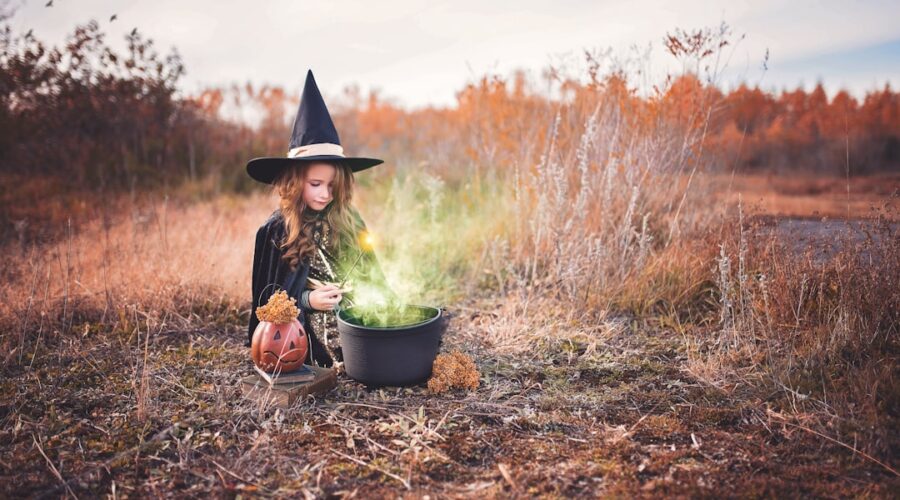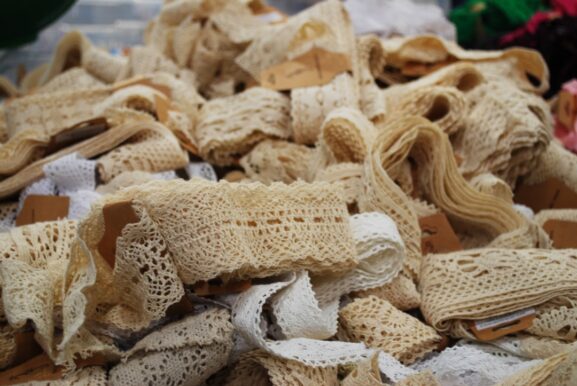Incorporating Cultural Traditions into Your Wedding: A Planner’s Guide
Weddings are a celebration of love, unity, and the coming together of two families. As couples embark on the journey of planning their special day, many find themselves drawn to the idea of incorporating cultural traditions that reflect their heritage or the heritage of their partner. This practice not only enriches the wedding experience but also honors the history and values that shape the couple’s identity.
By weaving cultural elements into the fabric of their wedding, couples can create a unique and meaningful event that resonates with their families and communities. The incorporation of cultural traditions can manifest in various ways, from rituals and ceremonies to attire, music, and cuisine, allowing couples to express their individuality while paying homage to their roots. In an increasingly globalized world, where diverse cultures intersect and intermingle, the blending of traditions can also symbolize the union of different backgrounds.
This fusion can lead to a richer, more vibrant celebration that reflects the couple’s journey together. However, it is essential to approach this process with sensitivity and respect, ensuring that the traditions chosen are authentic and meaningful. As couples navigate the complexities of wedding planning, understanding how to thoughtfully incorporate cultural traditions can enhance not only the ceremony but also the overall experience for everyone involved.
This article will explore the significance of cultural traditions in wedding planning, offer guidance on researching and selecting appropriate customs, and provide insights into working with wedding agencies to ensure a seamless integration of these elements.
Key Takeaways
- Incorporating cultural traditions into your wedding can add a meaningful and personal touch to your special day.
- Understanding the importance of cultural traditions in wedding planning can help you make informed decisions about which traditions to incorporate.
- Researching and selecting cultural traditions to incorporate can involve exploring your own heritage as well as your partner’s, and finding meaningful ways to blend them together.
- Working with wedding agencies can help you navigate the process of incorporating cultural traditions and ensure that they are respectfully and authentically represented.
- Incorporating cultural traditions into wedding decor and ceremony can create a beautiful and unique celebration that honors your heritage and family traditions.
Understanding the Importance of Cultural Traditions in Wedding Planning
The Significance of Cultural Traditions in Wedding Planning
Cultural traditions play a vital role in wedding planning as they serve as a bridge connecting couples to their heritage and familial legacies. These customs often carry deep meanings and symbolize values such as love, commitment, and community. For many couples, incorporating these traditions into their wedding is a way to honor their ancestors and celebrate the cultural narratives that have shaped their lives.
Creating a Sense of Belonging and Continuity
Whether it’s a traditional dance, a specific ritual performed during the ceremony, or even the choice of attire, these elements can evoke a sense of belonging and continuity that resonates with both families and guests. Moreover, cultural traditions can enhance the emotional depth of a wedding ceremony. They provide a framework within which couples can express their love and commitment while also acknowledging the support and influence of their families.
Reinforcing Family Ties and Community Support
For instance, many cultures have specific rituals that signify the joining of two families, such as the lighting of a unity candle or the sharing of a ceremonial drink. These acts not only symbolize the couple’s union but also reinforce the importance of family ties and community support. By integrating these practices into their wedding, couples can create a more profound connection with their heritage while also fostering an atmosphere of inclusivity for guests from diverse backgrounds.
Researching and Selecting Cultural Traditions to Incorporate

The process of researching and selecting cultural traditions to incorporate into a wedding can be both exciting and daunting. Couples should begin by reflecting on their own backgrounds and those of their partner. This introspection may involve conversations with family members to uncover meaningful customs that have been passed down through generations.
Additionally, exploring cultural literature, attending community events, or even visiting cultural centers can provide valuable insights into various traditions that may resonate with the couple’s vision for their wedding day. It is essential to approach this research with an open mind, as some customs may be unfamiliar or require adaptation to fit modern sensibilities. Once couples have gathered information about potential traditions, they should consider which elements align with their personal values and wedding theme.
It is crucial to prioritize authenticity; selecting traditions that genuinely reflect one’s heritage will create a more meaningful experience for both the couple and their guests. Couples may also want to think about how these traditions can be integrated into different aspects of the wedding, such as the ceremony, reception, or even pre-wedding events like engagement parties or bridal showers. By thoughtfully curating a selection of cultural elements, couples can create a cohesive narrative that honors their backgrounds while celebrating their unique love story.
Working with Wedding Agencies to Incorporate Cultural Traditions
Collaborating with wedding agencies that specialize in cultural weddings can significantly ease the process of incorporating traditions into a couple’s special day. These agencies often have extensive experience working with diverse cultural backgrounds and can provide valuable insights into how to seamlessly integrate various customs into the wedding planning process. From sourcing traditional attire to coordinating specific rituals during the ceremony, these professionals can help ensure that every detail aligns with the couple’s vision while respecting cultural nuances.
When selecting a wedding agency, couples should look for those with a proven track record in handling multicultural weddings or those that have specific expertise in the traditions they wish to incorporate. Open communication is key; couples should share their ideas and expectations while also being receptive to suggestions from the agency. This collaborative approach can lead to innovative solutions that enhance the overall experience.
Additionally, agencies may have established relationships with vendors who specialize in cultural elements such as music, catering, or decor, making it easier for couples to find authentic representations of their chosen traditions.
Incorporating Cultural Traditions into Wedding Decor and Ceremony
The incorporation of cultural traditions into wedding decor and ceremony is an opportunity for couples to create an immersive experience that reflects their heritage. Decor elements such as color schemes, floral arrangements, and table settings can be inspired by traditional motifs or symbols significant to the couple’s culture. For instance, using specific colors associated with good fortune or prosperity can add layers of meaning to the celebration.
Additionally, incorporating traditional textiles or patterns into table linens or centerpieces can create a visually stunning representation of cultural heritage. Ceremonial aspects are equally important when it comes to integrating cultural traditions into a wedding. Couples may choose to include specific rituals that hold significance in their culture, such as a sand ceremony or handfasting.
These rituals not only enhance the emotional weight of the ceremony but also engage guests in a shared experience that fosters connection and understanding. Furthermore, incorporating traditional music or dance during the reception can elevate the celebratory atmosphere while allowing guests to participate in cultural expressions that honor the couple’s backgrounds. By thoughtfully blending decor and ceremonial elements, couples can create a cohesive narrative that celebrates both their love story and their cultural heritage.
Ensuring Respectful and Authentic Representation of Cultural Traditions

While incorporating cultural traditions into a wedding can be a beautiful way to honor heritage, it is crucial for couples to approach this process with respect and authenticity. Misrepresentation or appropriation of cultural practices can lead to misunderstandings or offense among family members and guests. To ensure respectful representation, couples should take time to educate themselves about the customs they wish to incorporate.
This may involve consulting with family elders or community leaders who can provide context and guidance on how to honor these traditions appropriately. Additionally, authenticity is key when selecting which traditions to include in a wedding ceremony. Couples should avoid adopting customs solely for aesthetic purposes without understanding their significance.
Instead, they should focus on practices that resonate personally with them and reflect their genuine connection to their heritage. Engaging in open conversations with family members about these choices can foster understanding and support while ensuring that the couple’s representation of their culture is both respectful and meaningful.
Conclusion and Final Tips for Incorporating Cultural Traditions into Your Wedding
Incorporating cultural traditions into a wedding is an enriching endeavor that allows couples to celebrate their love while honoring their heritage. By understanding the importance of these customs in wedding planning, conducting thorough research, collaborating with knowledgeable agencies, and ensuring respectful representation, couples can create a memorable event that resonates deeply with themselves and their families. As they navigate this journey, it is essential for couples to remain true to themselves while embracing the beauty of their diverse backgrounds.
As final tips for incorporating cultural traditions into a wedding, couples should consider starting early in their planning process to allow ample time for research and collaboration with vendors who understand their vision. They should also remain flexible; some traditions may require adaptation to fit modern sensibilities or logistical constraints without losing their essence. Lastly, involving family members in discussions about which traditions to include can foster connection and support throughout the planning process.
Ultimately, by weaving together personal stories and cultural narratives, couples can create a wedding day that is not only a celebration of love but also a tribute to their rich heritages.
When planning your wedding and looking to incorporate cultural traditions, it’s also essential to consider other aspects of your celebration, such as renewing your vows in the future. Understanding the costs involved can help you plan not just for the wedding day but for a lasting marriage. For more detailed information on the expenses associated with renewing your vows, which can be a beautiful reaffirmation of your cultural and personal commitments, check out this related article: How Much Does It Cost to Renew Your Wedding Vows?. This guide can provide valuable insights for long-term planning beyond your initial wedding day.
FAQs
What are some ways to incorporate cultural traditions into a wedding?
Some ways to incorporate cultural traditions into a wedding include incorporating traditional attire, incorporating traditional music and dance, incorporating traditional foods and drinks, and incorporating traditional rituals or ceremonies.
Why is it important to incorporate cultural traditions into a wedding?
Incorporating cultural traditions into a wedding can help honor and celebrate the couple’s heritage and background, create a meaningful and unique wedding experience, and bring families and communities together.
How can a wedding planner help incorporate cultural traditions into a wedding?
A wedding planner can help incorporate cultural traditions into a wedding by researching and understanding the couple’s cultural background, suggesting ways to infuse cultural elements into the wedding, and coordinating with vendors and performers to execute cultural traditions seamlessly.
What are some examples of cultural traditions that can be incorporated into a wedding?
Examples of cultural traditions that can be incorporated into a wedding include a Chinese tea ceremony, a Hindu henna ceremony, a Jewish breaking of the glass, a Filipino money dance, an Irish handfasting ceremony, and a Mexican lasso ceremony.
How can couples ensure that cultural traditions are incorporated respectfully and authentically?
Couples can ensure that cultural traditions are incorporated respectfully and authentically by consulting with family members or cultural advisors, educating themselves about the significance and meaning of the traditions, and working with vendors who have experience in executing cultural elements.



